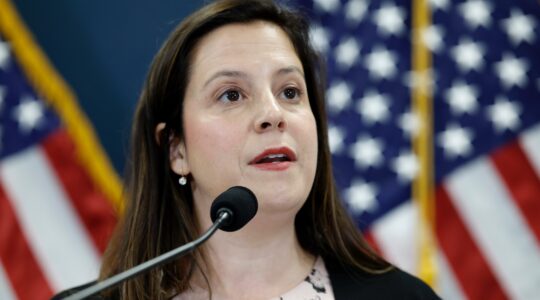WASHINGTON (JTA) — As efforts to reform the health care system reach the homestretch, one Jewish group has issued a detailed critique on how the latest legislation “falls short” in several areas.
B’nai B’rith International agrees with concerns expressed by some Democrats over the Senate Finance Committee’s legislation — that it lacks a public option or similar mechanism, and would not make insurance affordable for all.
The group said in particular the measure discriminates against older Americans who have yet to reach the age to qualify for Medicare. That is particularly important to B’nai B’rith, the largest Jewish sponsor of federally subsidized housing for the elderly in the United States.
“There are many good things” in the legislation, said Rachel Goldberg, director of senior advocacy for B’nai B’rith. But the “Baucus bill” — named for Finance Committee chairman Sen. Max Baucus (D-Mont.) — also leaves some important things out, she said, and the group wants to discuss those concerns as the debate progresses.
Goldberg also said that with so much “misinformation” swirling around health care reform, B’nai B’rith hoped that discussing specific provisions would help people understand what is actually in the legislation.
Other Jewish groups are watching the debate closely and waiting to see what the Senate settles on before dealing with specifics.
The associate director of the Religious Action Center of Reform Judaism, Mark Pelavin, said his group remains focused on how any legislation meets the goals of universal coverage and affordability.
“The Baucus bill is an important vehicle to allow the debate to proceed in the Senate,” Pelavin said, adding that his organization would likely be backing or opposing various amendments to the bill in upcoming weeks.
“We’re in the fourth quarter,” he said, “and what you want to do is be in a position to win in the fourth quarter.”
Rabbi Steve Gutow, the president of the Jewish Council for Public Affairs, said his group is stressing similar goals of affordability, universality and cost savings, but is waiting for the debate “to become more clear so we can be more clear.”
The Baucus bill was introduced last week and is being marked up in committee this week.
According to the Congressional Budget Office, the measure would not add to the deficit, spurring support from some conservative Democrats. But it has drawn some criticism from liberal Democrats and failed to garner any backing from GOP senators.
Goldberg said B’nai B’rith is particularly concerned that the Baucus bill would allow insurance companies to charge customers aged 50 to 65 as much as five times more than younger adults. That’s a particular problem because the subsidies offered in the bill are based entirely on income level and not on what one is being charged.
While Goldberg said B’nai B’rith would like to see age not matter at all in the pricing of insurance, she said the House bill’s 2-1 formulation is much more acceptable.
The organization also is stressing the need for a public option — or some other “workable mechanism” — that would keep insurance costs down.
“It’s very important to have some mechanism” where insurance companies have to “compete for business instead of charging whatever they want,” said Goldberg, who believes the nonprofit insurance cooperatives that the Baucus bill sets up in states would not be effective enough.
The Baucus bill also does not include the CLASS (Community Living Assistance Services and Supports) Act, which would establish a government-run disability insurance system for adults with long-term health care needs. A number of Jewish organizations have supported the act.
B’nai B’rith has been trying to convince seniors that the health care reform legislation being considered would have numerous benefits for them in a bid to counter the perception among many seniors that change in the health care system would be to their detriment.
Specifically, Goldberg noted that reform plans all shrink or eliminate the “doughnut hole” in the Medicare Part D program — a term referring to the gap in coverage forcing those on Medicare to pay the entire cost of their prescription drugs until reaching a certain threshold. In 2009, for example, after the first $2,700 spent, Medicare enrollees had to pay the full cost of their prescription drugs until reaching $6,154, at which point Medicare kicks back in, covering 95 percent of further costs.
Goldberg said the “doughnut hole” leads many seniors to take fewer doses of medicine they need in order to save money.
JTA has documented Jewish history in real-time for over a century. Keep our journalism strong by joining us in supporting independent, award-winning reporting.





